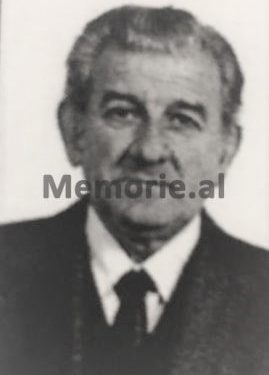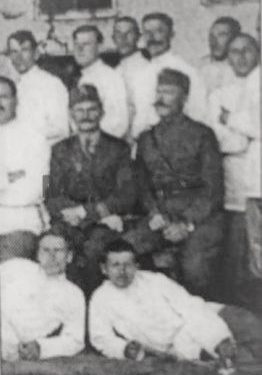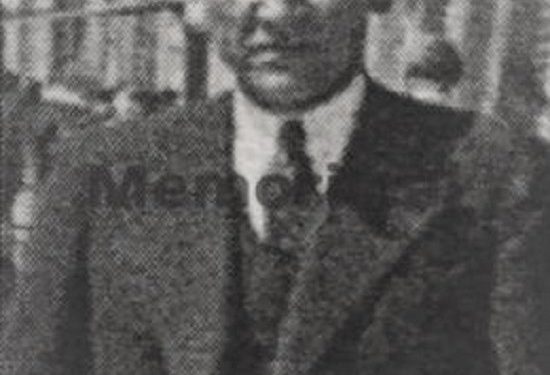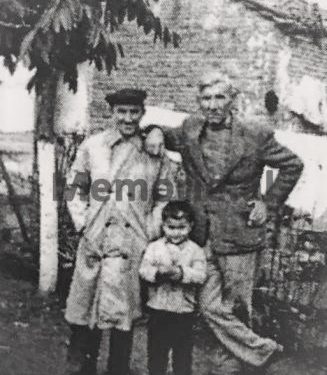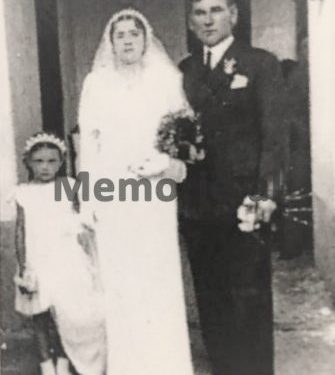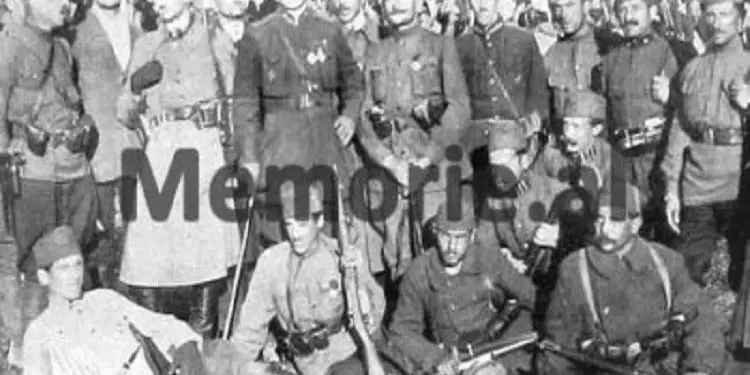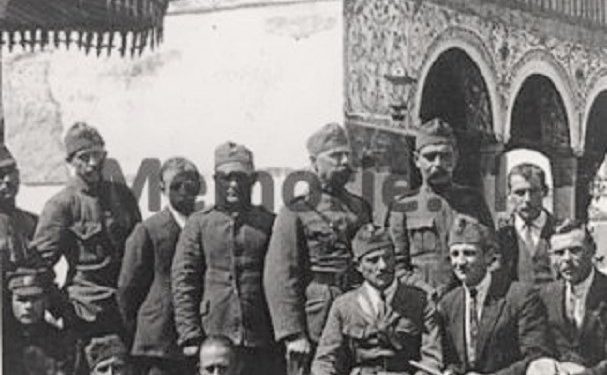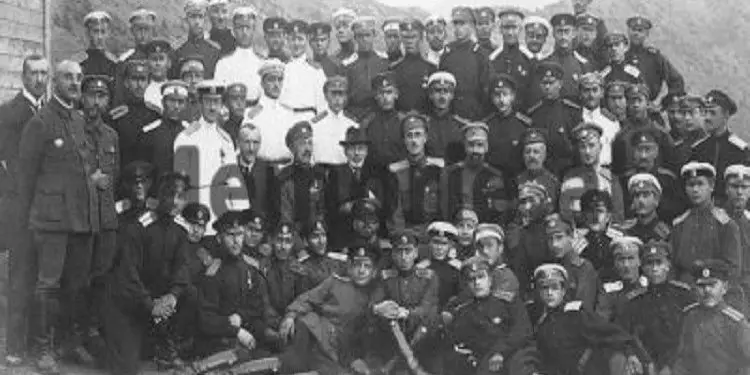Dashnor Kaloçi
Memorie.al/ publishes the rare testimony of 80-year-old Jovan Batishevi, originally from the town of Gori in Georgia, near Tbilisi, where his father, Gavrili, knew Stalin, with whose family they got along very badly, as Josif Visarionovic was very problematic. How did Jovan’s father manage to get an education and graduate with high results in the Moscow military academies, who after serving for some time in the Royal Guard at the Tsar’s Palace, Nikola Romanov II, as his bodyguard, where he was graduated with the highest decoration: “Hero of the Tsar”, after the victory of the Bolsheviks in the October Revolution, and the coming to power of Lenin and Stalin, he left Russia and came and settled in the former Yugoslavia, where in December In 1924, he joined the ward of white Russians who had been there as a political emigrant with General Vrangel and came to Albania with Ahmet Zogu, to serve with him until April 1939 when he left Albania. What did Gavril Batishev do during the occupation of the country and how did his life and that of his compatriots, the white Russians, go during the years of the communist regime of Enver Hoxha…?
95 years ago, on December 24, 1924, Ahmet Zogu, the former Minister of Internal Affairs who was staying as a political asylum in Yugoslavia together with some of his supporters since June of that year when he left Albania to avoid a bloodbath after the armed uprising and coup d’etat undertaken by the fanolist forces after the assassination of Avni Rustemi, decided and returned to Albania to regain the power that the fanolist forces had taken from them by force of arms. Zogu’s return to Albania was considered a “Triumph of Legality”, as the government that was before June ’24 with Prime Minister Shefqet Vërlac (where Zogu held the portfolio of the Ministry of Internal Affairs), was a legal government emerged votes in parliament and she ousted power with gun violence from fanatical forces. On his return to Albania, Ahmet Zogu along with his loyal supporters took with him about 95 white Russians (the historiography and propaganda of the communist regime inflated this figure, saying 300), Russian General Vrangel’s soldiers who were settled as political asylum seekers in Yugoslavia at the time, after the October Bolshevik Revolution, who were and were needed as specialists in the use of heavy weapons, mainly light artillery. One of them was Gavril Batishev or as he was otherwise known by the surname, Dzhugashvili, because he was from Gori, where Josif Vissarionovich Stalin was born, and even their families and houses were separated by only one fence. At that time, unlike Stalin, who joined the Bolsheviks, Gavril Batishev was their opponent and had served as the Tsar’s bodyguard, after the October Revolution led by his fellow countryman Josif Vissarionovich, he was forced to leave his homeland to settle as a political asylum in Yugoslavia at that time with the forces of the Belgian general, Vrangel, with whom he came to Albania, living in Tirana until 1960 when he died at the age of 65. But how did his life go during the period of the Zog Monarchy and the communist regime of Enver Hoxha? His son, 80-year-old Jovan Batishevi, introduces us to this with his exclusive interview for Memorie.al.
Mr. Jovan, what is the origin of your family?
The origin of our family is from Gori, Georgia, where on March 17, 1895 was born my father, Gavril Ivan Batishev, or as he was otherwise known by the surname, Dzhugashvili. My grandfather, Ivan Batishev, had seven sons and two daughters, while my father, Gavril, was the fifth of the children. As our father told us, his family was a family of noble descent and very rich with many properties and possessions. Gori has been a very famous city, as Josif Visarionovic Stalin was born and lived there for many years with his whole family, which was known by the surname Dzhugashvili. My father’s family was next door to them and only one wall separated them from Stalin’s father’s family.
Did your father know Stalin?
Of course, my father knew Stalin very well personally, but he never had any great friendships with him. This was due not only to the fact that Stalin was several years older, but also because there was no friendship between the two families, that of my father and that of Stalin. There were several reasons they were not done with each other.
Specifically, what….?
Yes, the first was the origin. My father’s family, which at the time consisted of about 75 members, was a wealthy and noble family for several generations. Many educated boys and girls had emerged from it, while Stalin’s had not. My father’s second family was a family that supported and contributed to the Tsar of Russia, while that of Stalin was his opponent.
What else did your father tell you about the Stalin family?
The father told us that Stalin’s family was a very problematic family with many contradictions with all the other Gori families. Our father told us that only one member of Stalin’s family was a good man, and that everyone else, including Stalin, was a Kachak. While in Gori, Stalin, or Joseph as he was called at the time, spent most of his time with the people of his family, stealing and plundering mainly the horses of other families, who then sold them to other villages. That thing, stealing horses, etc., whatever they found, they did with our family, even though we were neighbors with them.
Going back to your father, where did he go to school?
His father finished elementary, middle and high school in his hometown of Gorin, and then he enrolled as an officer in the Moscow cadet school, which he graduated with very good results in 1915.
After graduating from the officers’ school, where was the father named?
The father was assigned to a ward near Moscow where he served for a year and a half. During that time the ward where Gavril served was attacked several times by Bolshevik forces and for the bravery shown in defending his ward, the father was decorated with the Golden Cross of the Tsar of Russia, Nikolai Romanov II, being proclaimed ” Hero of the Carit “. After that as a reward, the father was sent to the Military Academy in Moscow, in the Cavalry branch, which he finished with very good results in June 1915, gaining the superior rank. In 1915, when his father was serving in the military unit near Moscow, his father, Ivan, moved his entire family from Gori and settled in the village of Stavropol near the Caucasus. One of the main reasons for their departure was that they could not stand the deeds of the Stalin family, which did not leave them comfortable looting them from time to time.
But after graduating from the military academy, where did the father serve?
After graduating from the military academy, Gavril was called up to serve inside the Tsar’s Royal Palace, otherwise known as the Winter Palace. The father served in that position until the end of August 1917, when the Tsar’s Royal Guard unit was dissolved. After that the father received the last two salaries and returned to his family in the village of Stavropol.
How long did my father stay in the village and where did he go next?
He did not stay there long, as he had served in the Tsar’s Palace, he was wanted to be killed by Bolshevik forces. My father told me that at that time his father, Ivan, gave him a large sum of money and told him to leave Russia as well, as Lenin’s left-wing forces were on the verge of their victory. Many white Russians emigrated to France and the United States at the time, and Gavril was forced to emigrate to the former Yugoslavia along with many other Tsarist ex-servicemen, settling in Belgrade with political asylum status.
What about in Yugoslavia, how long did the father stay?
In Yugoslavia, his father remained a political emigrant until December 1924, when he, along with several other white Russians, was chosen to accompany Zog on his return to Albania. From December 1924 when he came to Tirana, until April 7, 1939 when Zogu was forced to leave Albania, my father served continuously in the Royal Palace of Zogu, but as a simple officer.
But how is it explained that your father served as a simple officer with King Zog, at a time when he had graduated from military schools and academies in Moscow and had to be a senior officer?!
Although he had graduated from the military academy in Moscow and was decorated with the Golden Cross “Hero of the Tsar” when he came to Albania, I do not know why his father did not show his ranks and as I said he served as a simple officer.
Did the father have a relationship with Zog?
The father did not have any great intimacy with Zog, but I know that he donated to Zog, the sword they gave him when they decorated him “Hero of the Tsar”.
But who had King Zog as a close friend of the white Russians?
Zog’s close friend was Boris Beleski, who was also his father’s closest friend.
What about other white Russians, who did King Bird have a friend with?
In addition to the white Russian Boris Beleski, his close friend was also Llavrent Paqoku.
Going back to the arrival of white Russians in Albania, where did they settle?
Initially, all the white Russians who accompanied Zog, were accommodated in the Hotel “Elbasani” which was located somewhere in the center of Tirana, very close to the mosque.
Even your father, did you stay there?
Yes, he first settled there with the others, while in 1937 when he married my mother, Marushe Haxhinasto, they rented a house near the other mosque, where today is the neighborhood “Ali Demi”. From that marriage I was the only one born on October 29, 1939, as my parents had no other children.
During the time that your father was in Albania, did he ever connect with his family that he had left in his homeland?
The father tried several times to contact his family, but could not find that he had no address. Perhaps his family could have been persecuted by the communist regime of Stalin as former supporters of the Tsar and it was not known where they ended up.
After Zog’s departure in April 1939, what happened to your father. So, at the time of the invasion of the country?
In 1940, the father was arrested by the Italians on charges of coming from the Soviet Union to Albania to spread communist ideas and for this he was exiled to several islands in Italy.
How long did the father stay in exile?
He did not stay in exile for more than six months, as it seems that this claim was clarified and his father was released and came back to Albania. After that he started working at the Tirana Zoo (located where today is the Parliament Park), where there were only bears.
How long did your father work there?
My father worked there until his death in April 1960.
Where did the father die?
The death of my father for me has remained quite suspicious, as he was a man of strong physique (2.04 m. Tall) and had never suffered from any disease. When my father died on April 11, 1960, I was a soldier at the border and when I came home with permission, he was buried. My mother told me that her father had a ruptured stomach and was rushed to the hospital, but she did not know how she was treated. My mother was constantly suspicious of my father’s death, and after some time I asked Dr. Papariston, who told me that he did not remember, as he operated on dozens of patients.
Where did you work?
After graduating from high school in 1958 and being discharged from the army in 1961, I started working as a turner and dispatcher at the Enver plant where I worked until 1995 when I retired.
During those years did you have problems and did they ever mention your father’s past?
In general, they did not harass me, but there were cases when they told me at work: “Your father brought Zog to Albania”, or when I was walking on the street, they said: “This white Russian is passing by”. While my father was alive, we were not harassed much, but we had some small problems after his death when we came home here near the “Alqi Kondi” school. At that time the Front started digging into his biography and in 1964 they searched our house and seized most of the photos of my father where he had appeared as a soldier of the Tsar and Zog. After this control we were proposed several times to be deported from Tirana, but again we were not moved.
Did your father have friendships with Tirana families?
Gavrili had only one close friend, Cen Murthin, a tyrant who sold trees there at the Pedagogical University where we lived for rent in Mazrrekët, a Tirana family with whom we got along very well. With Ceni, my father drank a glass, sometimes at his shop and sometimes at our house. The father did not associate with anyone else as he was a very closed type and mostly stayed at home reading the many books he had in his personal library.
What happened to the other Russians who came to Albania with your father, what was their fate in the communist regime of Enver Hoxha?
Of the white Russians who came with Zog to Albania, more than half stayed here getting married and starting their own families.
Who did your father befriend?
After 1945, the father-maintained friendship with some of them, but the two closest friends he had were Nikola Prohr and Viktor Lenivenko. Since the time of Zog, Nikolla had worked as a cook, while Viktori as a mechanic at SITA. Even after 1945, Nikola continued to work as a cook, while Viktori worked as a mechanic from 1949 until his retirement.
Did your father maintain friendship with them both?
Not only did he keep it, but having close friends, as single as they were, the father kept them in our house at “Ali Demi”. Nikola died there in our home in 1958, and when I got married and we were very close, Viktor went to the Nursing Home, where he died in the early 80’s. Even with Llavrent Paqoku who died in 1965 the father maintained the friendship.
During those years, do you remember Dad ever talking about his former childhood friend, Stalin?
Dad never talked about Stalin, and when one of his friends came home, I knew I had to leave for the next room. All that I am telling you, including what I told you about Stalin, I have hardly disconnected from him over the years, or rather I have secretly heard him when he seldom ever talked nonsense to his mother, or to his friends, white Russians.
Did your father have problems with the communist regime and how was he treated by them?
The father had no problems from the communists who came to power in 1944 and he continued to work at the Zoo the same as before. One of the main reasons I think he was not harassed by the communists was the fact that he had been interned in Italy by the fascists, on the charge of coming to Albania to spread communist ideas. This I think must have been like saying the alibi that saved my father from the revenge of the communists, when it is well known that some of the other white Russians were massacred by them. One of them was Boris Beleski, my father’s closest friend, whose wife, Kalina, was my godmother.
But after the 1990s, did you try to connect with your father’s family in the former Soviet Union?
After the ’90s I went several times to the Russian embassy in Tirana, but despite their great desire we could not establish any connection. After 2000, I went several times to Russia where one of my two sons live and works, but again I did not receive any information about my father’s family./Memorie.al




